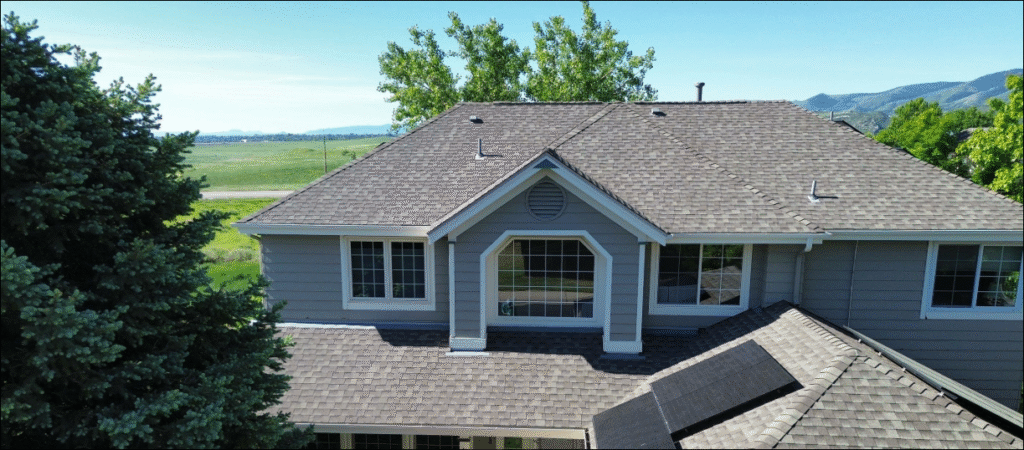Replacing a roof in Colorado isn’t just a construction task—it’s a regulated process that requires careful attention to local laws and permitting procedures. Whether you’re hiring professional roofers in Denver or managing the process yourself, obtaining the correct permits ensures your project is safe, legal, and up to code.
Under What Conditions Is a Permit Needed for Roof Replacement in Colorado?
Most roof replacement projects in Colorado demand a valid permit issued by your local building department. Permits are generally required any time a roof is being replaced, as this type of work affects the structural and weatherproofing integrity of your home. Denver, like most Colorado municipalities, mandates that permits be obtained before work begins.
Permits are essential for:
- Full roof replacements
- Structural changes during re-roofing
- Changes to roof slope or drainage
- Installation of new roofing layers beyond code-allowed limits
Projects that don’t begin with the right paperwork in place can be halted by inspectors, fined, or required to undergo costly rework.
How to Get a Roofing Permit in Denver, Colorado
In Denver, the permit process begins with submitting an application through the city’s Building Department. You’ll need to provide:
- Scope of work
- Detailed plans or product specifications
- Contractor’s license information (if applicable)
- Proof of insurance and bonding for contractors
- Permit fee payment (based on project size and type)
After the permit is issued, required inspections will occur at key stages—typically after underlayment installation and again once the job is complete. These inspections confirm the project complies with Denver building codes, including ventilation, flashing, and fire rating requirements.
Are Permits Necessary for Roofing Repairs?
Minor roof repairs may not require a permit, but the definition of “minor” is strict. Homeowners can usually make the following repairs without permitting:
- Replacing a few shingles due to wind damage
- Patching small leaks
- Clearing debris or performing surface-level maintenance
However, if the repair:
- Exceeds a certain square footage
- Involves replacing decking or framing
- Alters the roof’s fire resistance or ventilation
then it will likely trigger the need for a permit. Always consult the local building department before proceeding—even small violations can lead to fines or insurance complications.
Who Is Responsible for Pulling the Permit?
Both homeowners and contractors can pull a roofing permit in Denver, but accountability remains with the property owner. If you’re working with a roofing company in Denver, the contractor will usually handle the permitting as part of the service.
Choose a licensed, bonded, and insured contractor that knows Denver’s permitting landscape. This ensures:
- Faster approval times
- Fewer inspection failures
- Smooth communication with city officials
Be cautious of any roofer in Denver who suggests skipping the permit process—this can void warranties and result in code violations.
Risks of Skipping the Permit Process
Choosing not to obtain a roofing permit can have serious consequences. These include:
- City-imposed fines and legal action
- Unpermitted work being red-tagged and halted
- Required demolition of completed work
- Denied insurance claims due to non-compliance
- Reduced home value or sale complications
Even worse, a roof installed without proper inspection may not meet fire safety or snow load requirements, leaving your home vulnerable.
The Role of Roofing Contractors in Denver
Qualified roofing contractors play a key role in securing permits, navigating codes, and scheduling inspections. A reputable roofing company in Denver will include permit management in their service contract.
For example, companies like Tried and True Roofing , a trusted provider of roofing services in Denver, Colorado, are familiar with the permitting nuances that protect your home and ensure project success.
Conclusion
Roof replacements in Colorado aren’t as simple as tearing off the old shingles and starting fresh. Local regulations require permits to ensure safety, code compliance, and accountability. Whether you’re hiring experienced Denver roofers or planning to manage the project yourself, securing a permit is not just a legal formality—it’s your first step toward a safe and durable roof. Always verify permit requirements with the local building authority, and work with professionals who prioritize compliance and craftsmanship.


